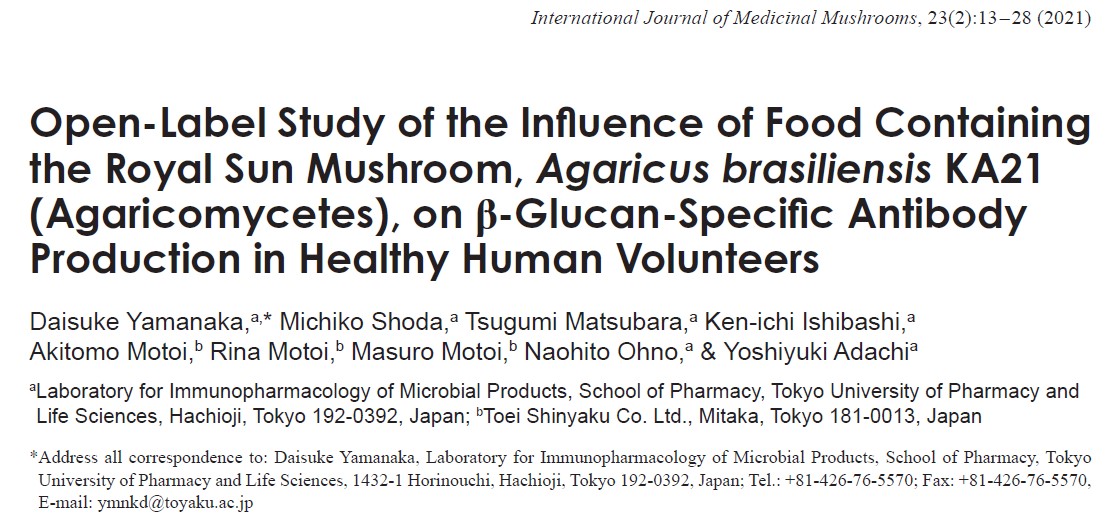Our new article was published by IJMM, International Journal of Medicinal Mushrooms.
This is our 31th academic paper since 2001.
Open-Label Study of the Influence of Food Containing the Royal Sun Mushroom, Agaricus brasiliensis KA21 (Agaricomycetes), on β-Glucan-Specific Antibody Production in Healthy Human Volunteer.
Abstract
The edible mushroom Agaricus brasiliensis contains a large amount β-glucan, which is mainly composed of a β-1,6-glucan structure. In this study, we investigated the effect of A. brasiliensis strain KA21 on the anti-β-glucan antibody titer in healthy humans and the role of antibodies as an immunomodulator. Twenty-two healthy volunteers were fed the dried fruiting body of A. brasiliensis (900 or 1500 mg/day) for 12 weeks. The anti-β-glucan antibody titer in the serum was determined by enzyme-linked immunosorbent assay. Immunoglobulin G (IgG) against β-glucan was significantly upregulated after intake of A. brasiliensis. Murine experiments demonstrated improvement of anti-β-glucan antibody production after intraperitoneal injection of Agaricus-derived β-glucan. To understand the role of antibody against β-glucan in exclusion of pathogenic fungi, we examined the interaction between HL-60 cells and antibody-treated heat-killed Candida albicans. Flow cytometry analysis indicated the upregulation of Candida-positive HL-60 cells after treatment with human IgG, whereas the competitive assay demonstrated that the main epitope of Candida-reacted IgG was the β-1,6-glucan structure. Binding between HL-60 and IgG-opsonized C. albicans was suppressed by anti-Fcγ receptor 1 (FcγRI) neutralizing antibody. Finally, using FcγRI-expressed cells with the nuclear factor of activated T-cell reporter assay, we demonstrated that higher titers of anti-β-glucan IgG can induce stronger Fc receptor-mediated cell activation through the formation of an antibody-β-glucan complex. In conclusion, oral ingestion of A. brasiliensis KA21 promotes anti-β-glucan antibody production and may contribute to preventing fungal infection through the activation of immune cells by forming antibody-β-glucan complexes via an FcγR-dependent pathway.

